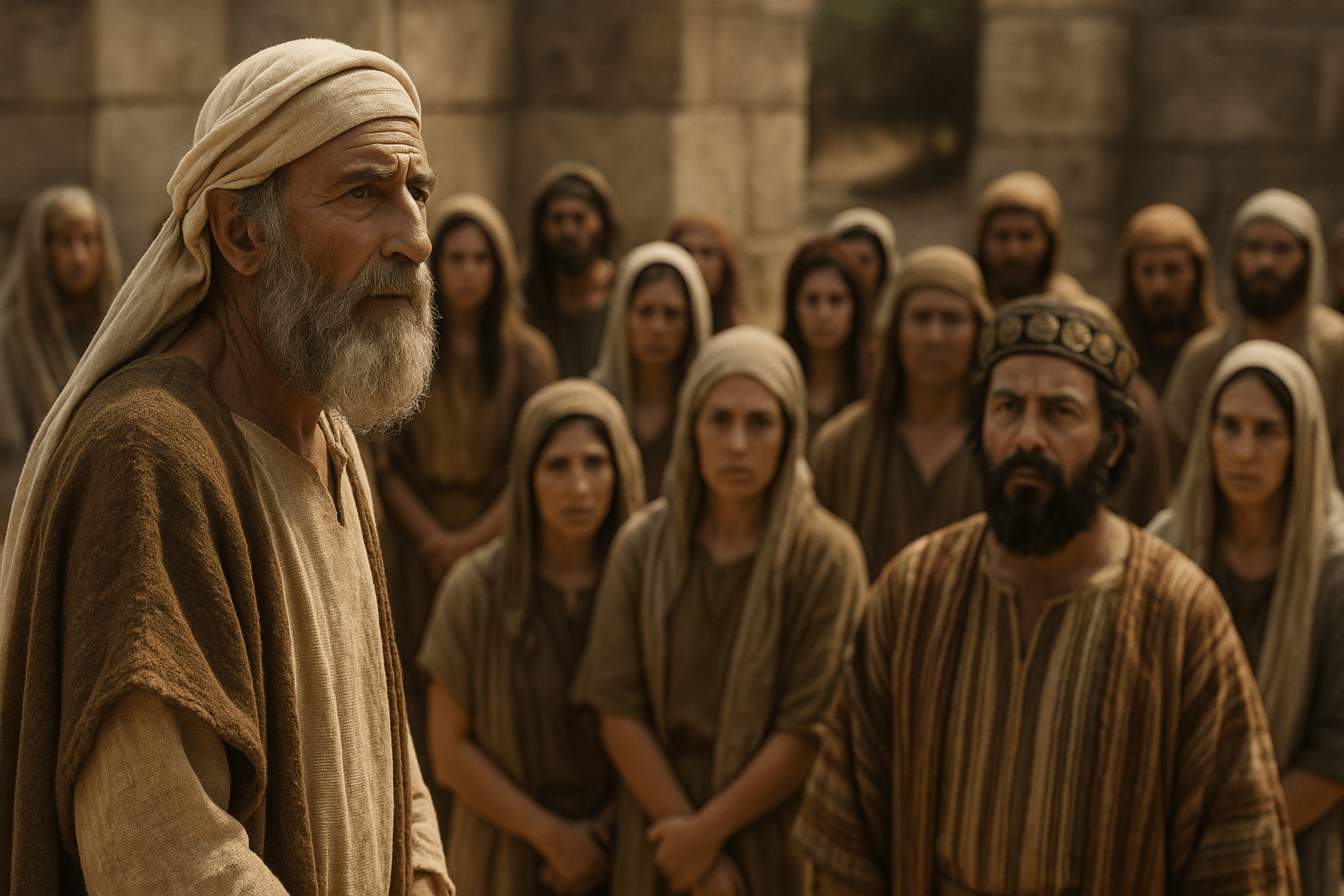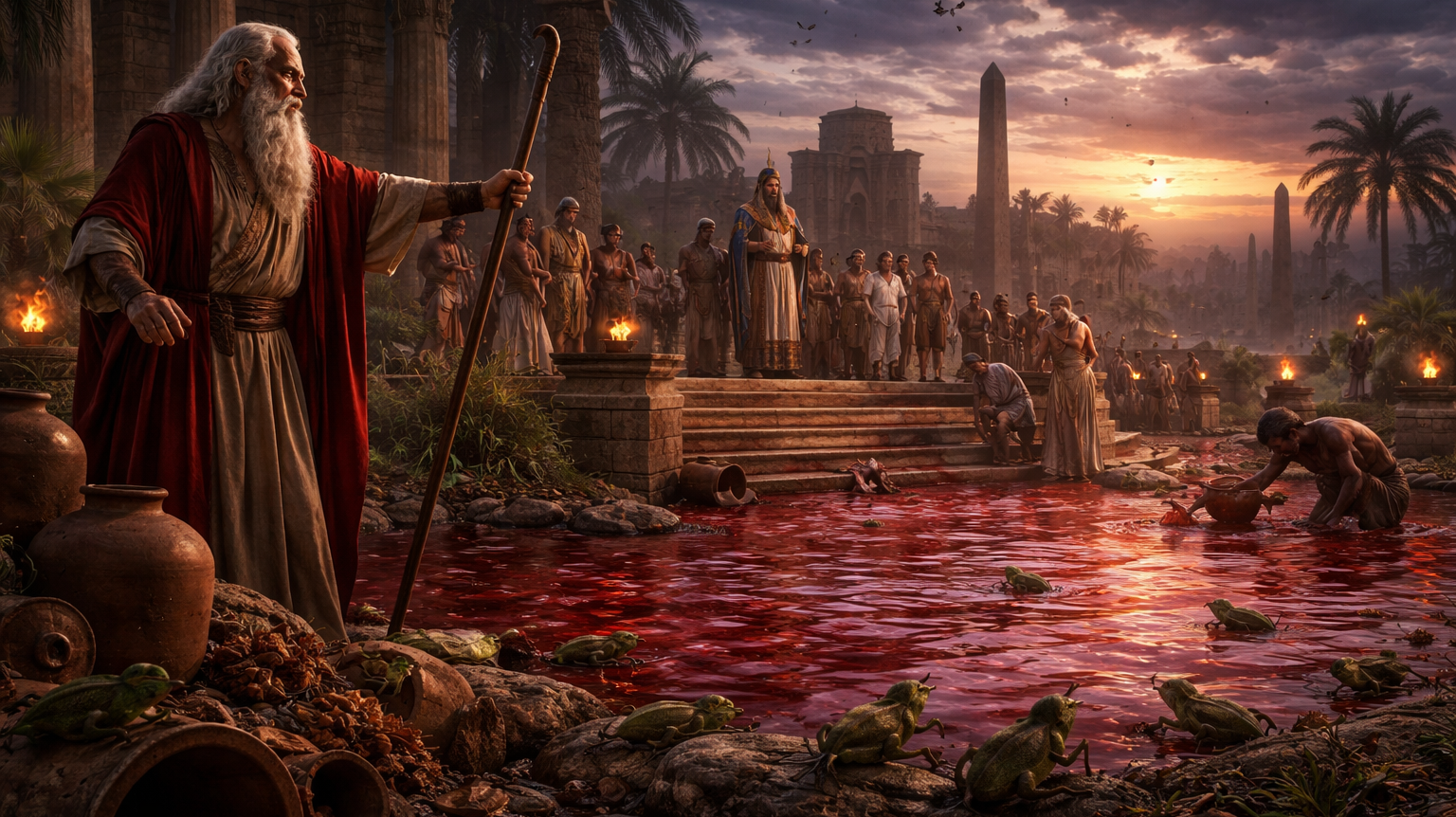Jeroboam was the first king of the northern kingdom of Israel after it split from Judah. His life was filled with bold choices, political power, and spiritual failure. The Bible gives many details about Jeroboam’s rise and fall. Here are 10 interesting facts about this important figure in Israel's history.
1. Jeroboam Was Chosen by God to Be King
Jeroboam didn’t steal the kingdom—he was appointed by God. The prophet Ahijah told him that God would give him ten tribes of Israel.
1 Kings 11:31 – “Take ten pieces for yourself, for this is what the Lord, the God of Israel, says: ‘See, I am going to tear the kingdom out of Solomon’s hand and give you ten tribes.’”
2. He Was a Servant Before Becoming a King
Jeroboam started out as a servant of King Solomon. He was an industrious young man and was put in charge of the labor force from the tribe of Joseph.
1 Kings 11:28 – “Now Jeroboam was a man of standing, and when Solomon saw how well the young man did his work, he put him in charge of the whole labor force of the tribes of Joseph.”
3. He Fled to Egypt to Escape Death
After Solomon heard that Jeroboam would take over the kingdom, he tried to kill him. Jeroboam ran to Egypt and stayed there until Solomon died.
1 Kings 11:40 – “Solomon tried to kill Jeroboam, but Jeroboam fled to Egypt... and stayed there until Solomon’s death.”
4. Jeroboam Became King After Rehoboam’s Harsh Words
After Solomon died, his son Rehoboam took the throne. When Rehoboam refused to lighten the people's heavy burden, ten tribes rebelled and made Jeroboam their king.
1 Kings 12:16 – “When all Israel saw that the king refused to listen to them... they answered the king: ‘What share do we have in David?... To your tents, Israel!’”
5. He Built Two Golden Calves
Afraid of losing his power, Jeroboam set up two golden calves for worship—one in Bethel and one in Dan—so people wouldn’t return to Jerusalem.
1 Kings 12:28–29 – “It is too much for you to go up to Jerusalem. Here are your gods, Israel, who brought you up out of Egypt.”
6. Jeroboam Led Israel into Idolatry
His actions caused Israel to sin deeply. He mixed politics with religion and turned the nation away from God’s commands.
1 Kings 14:9 – “You have done more evil than all who lived before you. You have made for yourself other gods... you have aroused my anger and turned your back on me.”
7. God Sent a Prophet to Condemn His Altar
While Jeroboam was offering incense at the altar in Bethel, a man of God came and prophesied against it. The altar split, and Jeroboam’s hand shriveled.
1 Kings 13:4 – “When King Jeroboam heard what the man of God cried out... he stretched out his hand... but the hand he stretched out shriveled up.”
8. His Son Died as a Sign of Judgment
When Jeroboam’s son Abijah became sick, he sent his wife to inquire of the prophet Ahijah. The prophet said the child would die, and the entire house of Jeroboam would be wiped out.
1 Kings 14:13 – “All Israel will mourn for him and bury him. He is the only one of Jeroboam’s family who will be buried.”
9. Jeroboam Reigned for 22 Years
Jeroboam ruled Israel for over two decades. Despite the warnings, he never turned from his sinful path.
1 Kings 14:20 – “He reigned for twenty-two years and then rested with his ancestors. And Nadab his son succeeded him as king.”
10. He Became a Symbol of Sin in Israel
Throughout the books of Kings, Jeroboam’s name is often followed by the phrase “who made Israel to sin.” His legacy became a warning to future kings.
2 Kings 17:22 – “The Israelites persisted in all the sins of Jeroboam and did not turn away from them.”
Summary Table: Jeroboam’s Life and Legacy
| Fact | Details |
|---|---|
| Chosen by God | Received prophecy from Ahijah (1 Kings 11:31) |
| Worked for Solomon | Rose to power through hard work (1 Kings 11:28) |
| Fled to Egypt | Escaped Solomon’s wrath (1 Kings 11:40) |
| Crowned by 10 tribes | After Rehoboam's failure (1 Kings 12:16) |
| Created golden calves | Introduced idol worship (1 Kings 12:28–29) |
| Led Israel into sin | Turned hearts away from God (1 Kings 14:9) |
| Prophet condemned his altar | God's judgment was immediate (1 Kings 13:4) |
| Son died as judgment | Fulfillment of Ahijah's prophecy (1 Kings 14:13) |
| Ruled 22 years | Reigned but never repented (1 Kings 14:20) |
| Remembered for sin | Legacy of rebellion (2 Kings 17:22) |
























